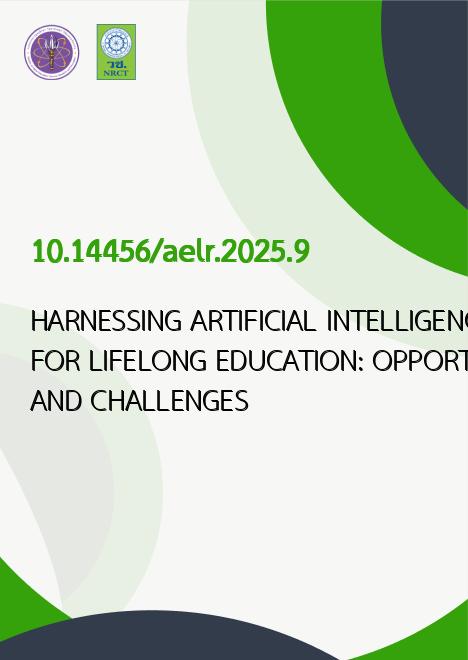
|
HARNESSING ARTIFICIAL INTELLIGENCE FOR LIFELONG EDUCATION: OPPORTUNITIES AND CHALLENGES |
|---|---|
| รหัสดีโอไอ | |
| Creator | Puthisat NAMDECH |
| Title | HARNESSING ARTIFICIAL INTELLIGENCE FOR LIFELONG EDUCATION: OPPORTUNITIES AND CHALLENGES |
| Contributor | Sippaphat ROTJANAWASUTHORN, Bhupinder SINGH, Christian KAUNERT |
| Publisher | Asian Education and Learning Review |
| Publication Year | 2568 |
| Journal Title | Asian Education and Learning Review |
| Journal Vol. | 3 |
| Journal No. | 2 |
| Page no. | Article 4 |
| Keyword | Artificial Intelligence, Lifelong Learning, Personalized Learning, Adaptive Learning Systems, Educational Technology |
| URL Website | https://so07.tci-thaijo.org/index.php/AELR |
| Website title | https://so07.tci-thaijo.org/index.php/AELR/article/view/6290 |
| ISSN | 2985-2862 |
| Abstract | This article explores the transformative potential of artificial intelligence (AI) in lifelong education, examining its opportunities and challenges. AI is reshaping teaching and learning through personalized and adaptive learning systems, leveraging AI-powered algorithms to analyze student data, identify individual needs, and tailor educational content and delivery. This personalization significantly improves learning outcomes and engagement. AI also optimizes educational management and administration, streamlining tasks and resource allocation. However, ethical considerations, such as data privacy, algorithmic bias, and the potential displacement of human teachers, require careful attention. The paper highlights the growing importance of lifelong education in the age of AI, emphasizing the need for continuous skill development to adapt to evolving job markets. AI-powered teaching assistants and intelligent tutoring systems are discussed as significant advancements, offering personalized support and real-time feedback. Challenges in implementing AI-driven systems, including infrastructure costs and teacher training, are also addressed. AI-powered data analytics for educational decision-making are examined, showcasing the potential for more informed and effective practices. Finally, the article concludes with future research directions and recommendations for policymakers and educators, stressing the need for a collaborative and responsible approach to ensuring equitable access to lifelong learning. |
